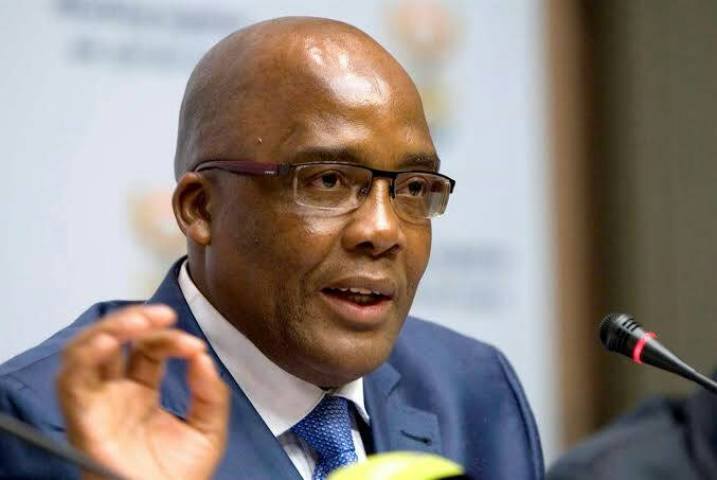Motsoaledi Hails Historic Pandemic Treaty at G20 Health Summit in Joburg
“The stark lessons of the COVID-19 crisis fuelled our collective resolve to forge a more robust and equitable framework,” said Dr Motsoaledi.

- Country:
- South Africa
South Africa’s Health Minister, Dr Aaron Motsoaledi, has praised the historic adoption of the World Health Organization’s (WHO) Pandemic Agreement, describing it as a “monumental achievement” that signals a new era of international cooperation in preparing for and responding to global health emergencies. The announcement was made during the 4th Health Working Group Meeting of the G20, currently taking place in Johannesburg, from 10 to 13 June 2025.
The agreement, formally endorsed by 124 member states on 20 May 2025, represents only the second international health treaty approved by the WHO since its founding in 1948. It comes after three years of negotiation, launched in response to glaring gaps and inequities exposed during the COVID-19 pandemic.
“The stark lessons of the COVID-19 crisis fuelled our collective resolve to forge a more robust and equitable framework,” said Dr Motsoaledi.
South Africa’s Leadership in Treaty Negotiation
South Africa played a pivotal leadership role in shaping the agreement through its position as co-chair of the Intergovernmental Negotiating Body (INB), alongside France and the Netherlands. Vice-chairs representing Brazil, Thailand, Egypt, and New Zealand were also instrumental in building global consensus.
In his welcome address to international delegates, Minister Motsoaledi highlighted the symbolism of hosting this announcement in Johannesburg — a city emblematic of both struggle and progress.
“Your presence here today is a testament to our collective commitment to global health security.”
Four Pillars of the Pandemic Agreement
The newly adopted agreement is anchored in four transformative pillars designed to fundamentally strengthen the world’s ability to prevent, detect, and respond to future pandemics:
-
Equitable Access to Pandemic Products
-
A major corrective to the disparities witnessed during the COVID-19 response. The agreement enshrines the right of all countries to timely access to vaccines, diagnostics, therapeutics, and personal protective equipment.
-
-
Global Supply Chain and Logistics Network
-
A blueprint to build regional and global manufacturing capacity, reduce bottlenecks, and ensure coordinated distribution of essential health products during emergencies.
-
-
Coordinating Financial Mechanism
-
A proposed global financing facility to support pandemic preparedness in low- and middle-income countries, ensuring rapid response capabilities and system resilience.
-
-
The One Health Approach
-
Recognition of the interconnectedness of human, animal, and environmental health, emphasizing surveillance and preventative action at the human-wildlife-environment interface to combat zoonotic diseases.
-
Introducing the PABS System: Pathogen Access and Benefit-Sharing
A groundbreaking feature of the agreement is the Pathogen Access and Benefit-Sharing (PABS) mechanism, which mandates that pharmaceutical companies provide 20% of pandemic-related health product output — 10% as donations and 10% at affordable prices — in return for access to pathogen data collected from around the world.
“This is a critical innovation. It ensures that all nations, especially those that share pathogen data, also benefit equitably from the resulting scientific advancements,” said Motsoaledi.
The PABS system is modeled in part on frameworks like the WHO’s Pandemic Influenza Preparedness Framework but significantly expands its scope and enforceability.
From Principles to Practice: The Next Phase
While celebrating the agreement’s adoption, Motsoaledi cautioned that the next phase — implementation — will be decisive. He urged stakeholders to engage in focused negotiations to finalize the PABS annex by 15 July 2025, under the guidance of the Intergovernmental Working Group.
“Finalising a robust and equitable PABS annex is the ultimate litmus test of our collective commitment,” he stressed. “It is the essential next step to transform the Pandemic Agreement from a document of principles into a functional, life-saving tool for justice and our shared global health security.”
A New Vision for International Cooperation
Throughout the week-long G20 Health Working Group meeting, delegates from the world’s largest economies, international organizations, and invited nations are deliberating on long-term pandemic preparedness strategies. Sessions include discussions on:
-
Sustainable financing mechanisms
-
Regional manufacturing expansion
-
Technology transfer
-
Regulatory harmonization
The pandemic agreement is viewed as a foundational piece of a broader global effort to build a more equitable and inclusive health architecture, particularly in supporting low- and middle-income countries that were disproportionately affected during previous pandemics.
A New Era of Health Solidarity
As the G20 Health Working Group continues, the adoption of the Pandemic Agreement stands as a testament to international unity forged through shared adversity. South Africa’s leadership, under Dr Motsoaledi, has been central in advocating for justice, equity, and cooperation in global health — principles that now form the bedrock of this landmark treaty.
“While we celebrate this milestone, let us remember — our work is far from over,” concluded Motsoaledi. “Let us move forward together, committed to safeguarding global health for everyone, everywhere.”
- READ MORE ON:
- Pandemic Agreement 2025
- WHO treaty
- Aaron Motsoaledi
- G20 Health Meeting
- global health security
- PABS system
- One Health approach
- vaccine equity
- South Africa health leadership
- pandemic preparedness
- international health law
- INB negotiations
- Johannesburg summit
- COVID-19 lessons
- public health diplomacy








